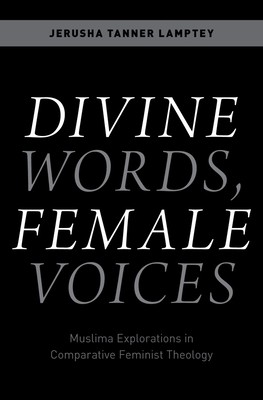
- We will send in 10–14 business days.
- Author: Jerusha Tanner Lamptey
- Publisher: Oxford University Press, USA
- ISBN-10: 019065337X
- ISBN-13: 9780190653378
- Format: 16 x 23.6 x 2.8 cm, hardcover
- Language: English
- SAVE -10% with code: EXTRA
Reviews
Description
The relationship between Islam and feminism is complex. There are many Muslim scholars who fervently promote women's equality. At the same time, there is ambivalence regarding the general norms, terminology, and approaches of feminism and feminist theology. This ambivalence is in large part a product of various hegemonic, androcentric, and patriarchal discourses that seek to dictate legitimate and authoritative interpretations. These discourses not only fuel ambivalence, they also effectively obscure valuable possibilities related to interreligious feminist engagement.
Divine Words, Female Voices is the follow-up to Jerusha Lamptey's 2014 book, Never Wholly Other, in which she introduced the idea of "Muslima" theology and applied it to the topic of religious diversity. In this new book, she extends her earlier arguments to contend that interreligious feminist engagement is both a theologically valid endeavor and a vital resource for Muslim women scholars. She introduces comparative feminist theology as a method for overcoming challenges associated with interreligious feminist engagement, reorients comparative discussions to focus on the two "Divine Words" (the Qur'an and Jesus) and feminist theology, and uses this reorientation to examine intersections, discontinuities, and insights related to diverse theological topics. This book is distinctive in its responsiveness to calls for new approaches in Islamic feminist theology, its use of the method of comparative theology, its focus on Muslim and Christian feminist theology in comparative analysis, andits constructive articulation of Muslima theological perspectives.
EXTRA 10 % discount with code: EXTRA
The promotion ends in 19d.03:07:03
The discount code is valid when purchasing from 10 €. Discounts do not stack.
- Author: Jerusha Tanner Lamptey
- Publisher: Oxford University Press, USA
- ISBN-10: 019065337X
- ISBN-13: 9780190653378
- Format: 16 x 23.6 x 2.8 cm, hardcover
- Language: English English
The relationship between Islam and feminism is complex. There are many Muslim scholars who fervently promote women's equality. At the same time, there is ambivalence regarding the general norms, terminology, and approaches of feminism and feminist theology. This ambivalence is in large part a product of various hegemonic, androcentric, and patriarchal discourses that seek to dictate legitimate and authoritative interpretations. These discourses not only fuel ambivalence, they also effectively obscure valuable possibilities related to interreligious feminist engagement.
Divine Words, Female Voices is the follow-up to Jerusha Lamptey's 2014 book, Never Wholly Other, in which she introduced the idea of "Muslima" theology and applied it to the topic of religious diversity. In this new book, she extends her earlier arguments to contend that interreligious feminist engagement is both a theologically valid endeavor and a vital resource for Muslim women scholars. She introduces comparative feminist theology as a method for overcoming challenges associated with interreligious feminist engagement, reorients comparative discussions to focus on the two "Divine Words" (the Qur'an and Jesus) and feminist theology, and uses this reorientation to examine intersections, discontinuities, and insights related to diverse theological topics. This book is distinctive in its responsiveness to calls for new approaches in Islamic feminist theology, its use of the method of comparative theology, its focus on Muslim and Christian feminist theology in comparative analysis, andits constructive articulation of Muslima theological perspectives.


Reviews